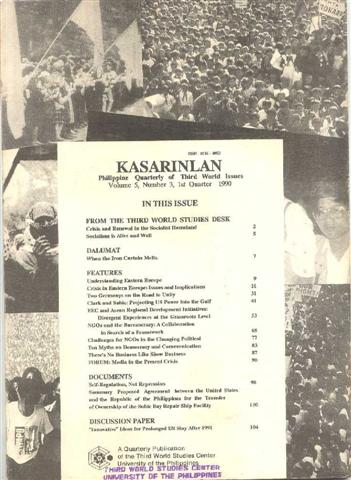EEC and Asian Regional Development Initiatives: Divergent Experiences at the Grassroots level
Abstract
Both the European Economic Community (EEC) and the Association of Southeast Asian Nations (ASEAN) hold similar endeavors in establishing regional cooperation/integration. However, their disparities start with the means to this end, an identity that facilitates increasing consolidation and the support of their peoples. This article aims to examine the factors which enable the European people’s intervention in the Community’s decision-making process and at the same time, discuss the obstacles to similar action in the ASEAN integration process. Specifically, this article shows a comparison of Euro-groups and Southeast Asian people’s organizations based on case studies on the activities of the EEC and ASEAN pressure groups in agriculture, labor and non-government organizations. In the end, it has shown that the EEC puts more premium on the participation of the people in the regional integration process whereas ASEAN member-states adopt policies that strengthen their respective economies in the world market. While the EEC has considerable influence as a regional bloc and won the confidence of its peoples as it tolerates and even accepts Euro-groups in regional affairs, the ASEAN is not as influential as a regional grouping and may even be considered isolated from its people as its member-states continue to pursue undemocratic national policies. However, despite the Southeast Asian people’s dissatisfaction over the ASEAN, they still believe that the issue of underdevelopment may be resolved through a regional forum - provided that it is a forum initiated and sustained by the people with popular democracy and empowerment at its base.
Published
2008-06-26
Issue
Section
Features
Keywords
EEC; ASEAN; European community; European non-government organizations
By submitting a manuscript, the authors agree that the exclusive rights to reproduce and distribute the article have been given to the Third World Studies Center.



